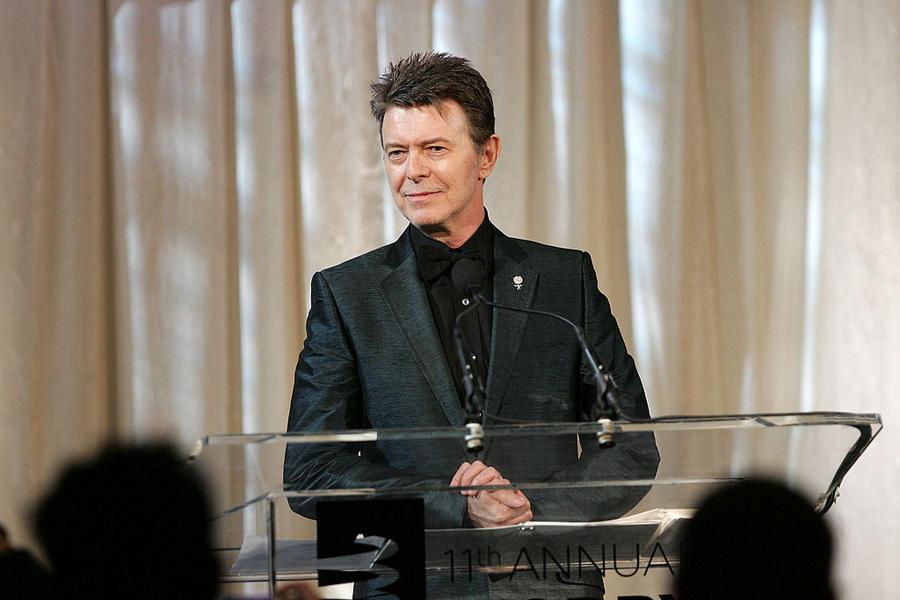When legendary musician David Bowie died at age 69 in 2016, it came as quite a shock. He had battled liver cancer for more than a year but shared the news with only a small handful of close people. Just two days before his death, he released a new album, Blackstar, and dropped a music video for the song "Lazarus" one day before the album came out.
Bowie left a tremendous legacy, from music to acting to fashion. But he had another skill that didn't get nearly as much attention:
Financial savvy.
During the late 1990s, Bowie was concerned about the future of his music. With online piracy and downloading platforms such as Napster, Kazaa, and Limewire sharing ripped copies of songs left and right, Bowie thought his music royalty streams would dry up.
Bowie briefly considered selling off the rights to his entire music catalog. That's something several bands and artists have done over the past decade, including Bob Dylan and The Offspring.
So David Bowie, creative genius that he was, came up with a creative solution…

Bryan Bedder/Getty Images
As luck would have it, Bowie had a friend who referred the musician to a banker. The banker suggested Bowie raise money by selling bonds.
You likely know about buying and selling stock, or equity in a company. Bonds are less known; you're buying debt, essentially loaning money in exchange for an interest payment, with the promise that the money will be paid back. Anyone with a worthwhile asset can sell bonds, and Bowie's music catalog certainly qualifies.
As the banker explained, Bowie could "securitize" his music royalties and sell debt, using his catalog as collateral. Each year, Bowie would take the money he made from his royalty streams and put them in a specially-formed financial vehicle. The bondholder would earn the royalties; if Bowie couldn't repay his loan by the due date, the bondholder would then own the music catalog.
Bowie Bonds
Bowie raised $55 million from Prudential Financial, using 25 albums consisting of 287 songs he had recorded before 1990 as collateral. These "Bowie Bonds" were enormously popular. Bowie essentially forfeited royalties for ten years in exchange for the upfront payment of $55 million. The singer took the upfront cash and bought songs owned by his former manager. The bonds, which were issued in 1997, were liquidated in 2007 and the rights to the song income went back to Bowie.
Bowie Bonds were the first modern example of celebrity bonds.
Bowie's timing worked out perfectly, too. In 1997, music piracy was still a novel concept, and banks believed music royalties would continue to pay out handsomely. As the music industry navigated the new world of digital downloads and streaming, Bowie was able to pay back the loan and fulfill his end of the deal while receiving a large upfront payment.
Had he done the deal in, say, 2002, he may have struggled to get even half of what he ultimately made. Thankfully, that didn't happen, and the Bowie Bonds were a big success — just like Bowie's career.
/2009/11/bowie-1.jpg)
/2016/02/GettyImages-92783053-e1454350171464.jpg)
/2020/12/bd.jpg)
/2021/02/Bob-Dylan.jpg)
/2014/06/mj.jpg)
/2009/09/Michael-Jackson.jpg)
/2018/04/Simon-Neil.jpg)
/2021/10/Ed-Orgeron.jpg)
/2019/07/ns2.jpg)
:strip_exif()/2020/06/taylor.png)
/2020/11/Dermot-OLeary.jpg)
/2010/01/Busta-Rhymes.jpg)
/2009/10/Jerry-Bruckheimer.jpg)
/2009/11/GettyImages-150841232.jpg)
/2011/01/Ernest-Borgnine.jpg)
/2009/11/ts.jpg)
/2018/01/jm2.jpg)
/2020/09/Lewis-Capaldi.jpg)
/2014/03/Deontay-Wilder-1.jpg)
/2013/02/Bella-Thorne.jpg)
/2011/01/GettyImages-82681952.jpg)
/2018/07/pat2.jpg)
/2023/03/Phillip-Schofield.jpg)